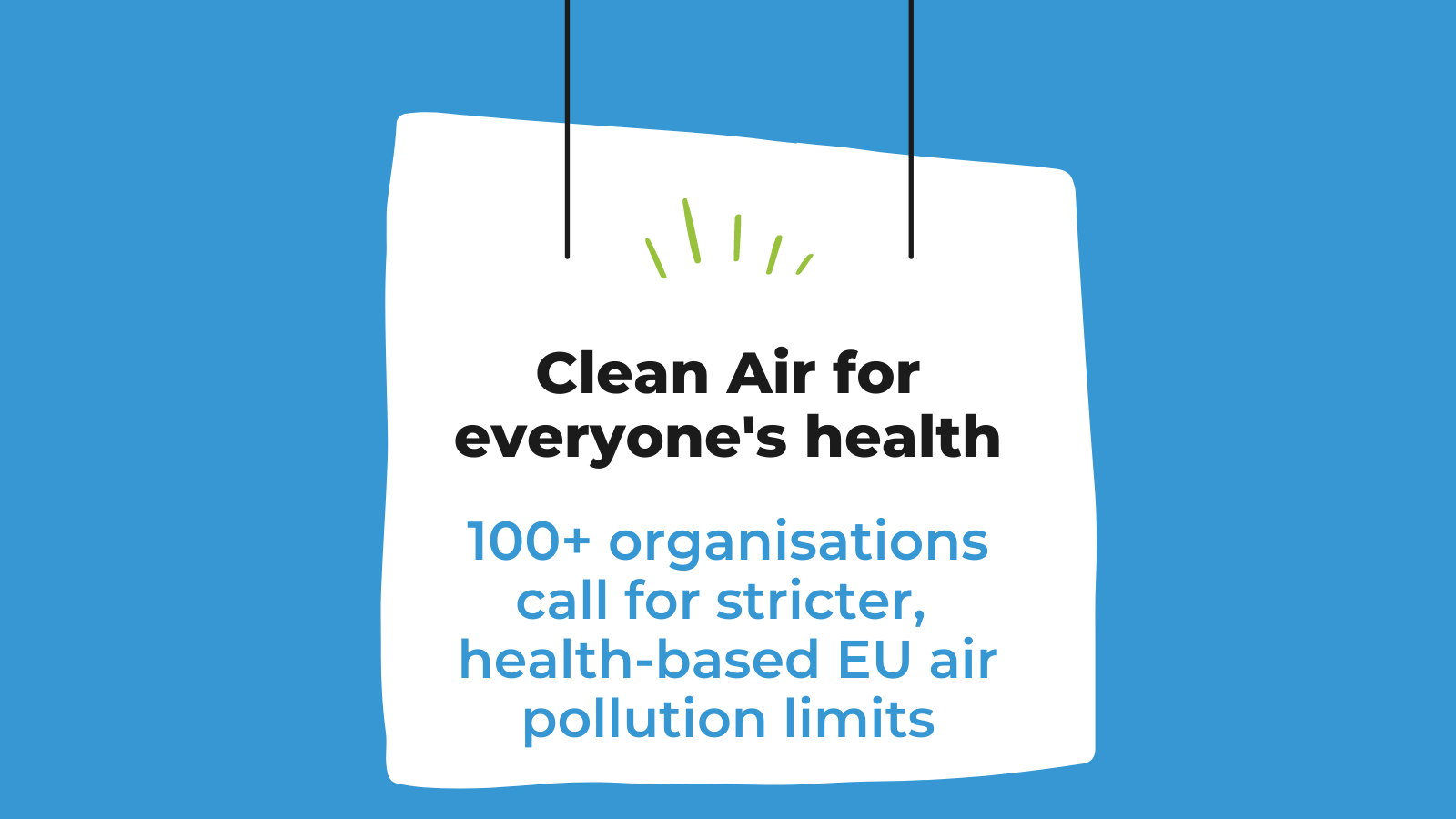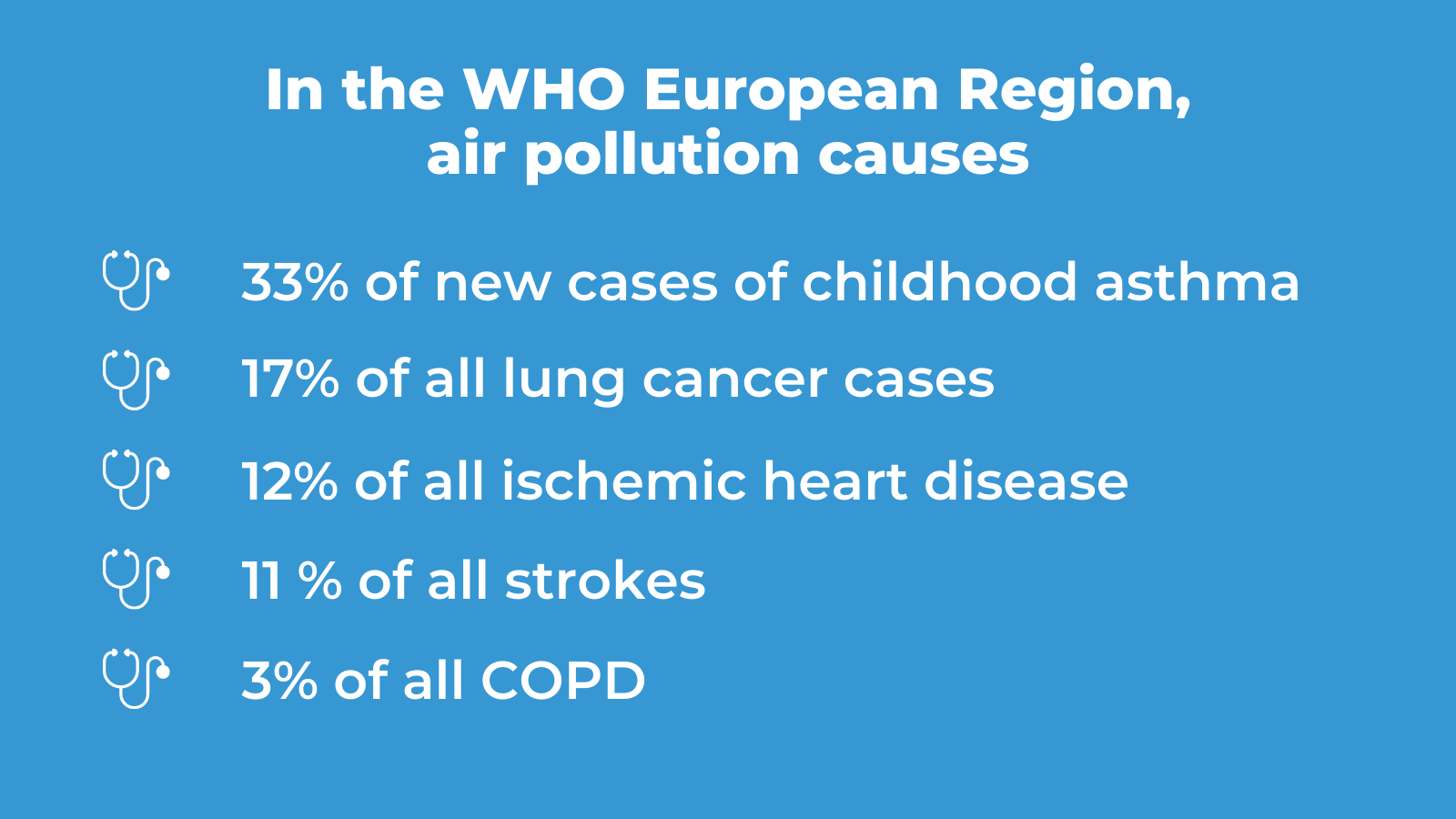As the European Commission is currently finalising the post-2027 Multiannual Financial Framework (MFF) proposal set to be launched on 16 July 2025, HEAL has sent a letter to the EU Commission President, the Executive Vice-Presidents, and Commissioners urging to scale up public investments into health protection from pollution and climate change in the next EU budget.
Exactly one year after the World Health Organization (WHO), after a systematic review of the science, published new Global Air Quality Guidelines with recommendations for maximum concentrations of the major air pollutants, more than 100 organisations in 17 EU countries have called on their health and environment ministers to save lives and protect nature from air pollution with legally binding, science-based EU air quality standards.
The senders, representing health professionals including major health networks and environmental civil society groups across the EU, ask their national ministers to support a full alignment with WHO recommendation in the EU´s upcoming revision of its clean air standards, by 2030 at the latest
Air pollution is Europe’s largest environmental risk to health, leading to an estimated 400,000 premature deaths annually and a cost estimated to be up to EUR 940 billion annually for the EU.
The unacceptably high health and environmental burden from air pollution is largely preventable.
At EU level, the publication of the legislative proposal revising EU’s Ambient Air Quality Directives, which sets clean air standards, is foreseen for 26 October 2022 as part of the Zero Pollution Package. In this crucial update for public health, the Council has a unique opportunity to save lives and prevent disease on an unprecedented scale.
The new WHO recommendations now suggest considerably lower maximum concentrations for the main pollutants, most notably for particulate matter with diameter < 2.5 μm (PM2.5), which causes the greatest health burden in the EU, for which an annual concentration of 5 μg/m³ is now recommended, which is a half of the previous WHO recommendation of 10 μg/m³, and five times lower than the EU’s current standard of 25μg/m³. For nitrogen dioxide (NO2), which has come under intense scrutiny in discussions on road transport and inner-city driving bans, a new annual concentration of 10 μg/m³ is now recommended, a significant decrease from previous WHO recommendation of 40 μg/m³, which is also the current EU standard.
Read the letters (full list will be updated as letters drop into ministers’ inboxes):
[[English (translated)]]Belgium: letter to the ministry of climate, environemnt, sustainable development and Green Deal and to the ministry for social affairs and health. Letters were sent to 2 federal and nine regional ministers, covering Flanders, Brussels, Wallonia and the Federal level.
France: letter to the transport ministry and the health ministry. Copies have been sent to 15 mayors in France.
Germany: letter to the ministry of economic affairs and climate action, the ministry for environment, and the ministry for health



